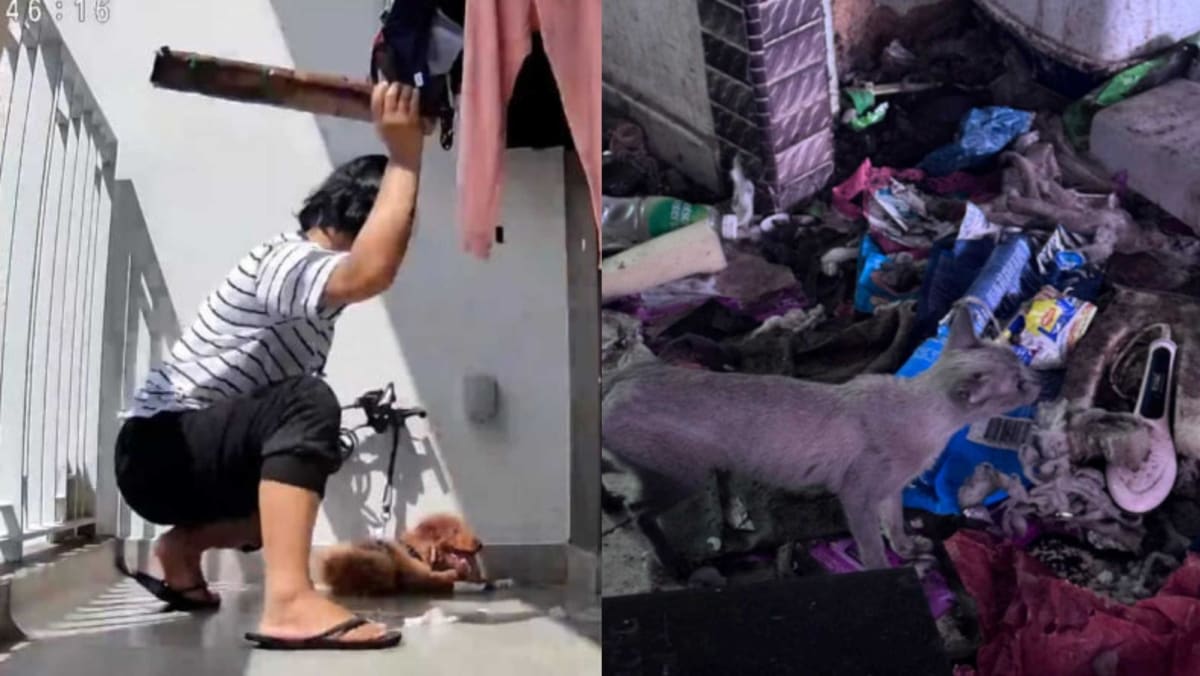SPCA said that while pet owners may outsource their pets’ care, they are still responsible for their pets’ well-being.
“In entrusting their pet to someone else, owners are accountable for identifying a suitable caregiver, educating the caregiver on appropriate pet care, monitoring the caregiver’s fidelity in exercising duty of care, and ensuring that the pet’s welfare is not compromised in any way by the transfer of primary caregiving duties,” said SPCA in its report.
The domestic helper had been told by her employer to hang the dog from the balcony to expose it to the sun, ostensibly to reduce the dog’s odour.
SPCA said pet care must be grounded in welfare science rather than inferred from other household practices.
“Household lore tells us that sunning our clothes can help to reduce the smell of mildew. However, this cannot be extended – lock, stock, and barrel – to a dog with bad odour,” said SPCA.
“The odour may be due to a medical condition which then needs to be treated under veterinary advice. Even if sunning is indicated, caution should be taken to avoid direct sunlight which can cause sunburn and to secure the pet in a comfortable manner, certainly not by hanging.”
SPCA also noted that some perpetrators of animal cruelty have been young people, with 15 such cases recorded in 2024, more than double that of the six cases in 2023.
While some cases may stem from benign intent, such as lifting a rabbit by the ears, others are suggestive of malicious intent, such as the beating of pet dogs or the shooting of community cats with a pellet gun.
“While the number is still small, it is deeply concerning when we consider that these are our youngest members of society,” said SPCA.
“In a developmental stage where peer influence takes precedence, youth learn quickly from one another. If the situation is not arrested, they may get desensitised to animal cruelty and regard it as the norm.”
POOR WELFARE AND NEGLECT
SPCA’s report also showed that the organisation investigated 678 cases of poor welfare, involving 1,737 animals.
This took the form of dissatisfactory living conditions, high-rise syndrome (pets falling from height due to failure to secure the home), pets left unattended, pets allowed to roam freely outdoors, neglected medical conditions, illegal sales of pets, and animal hoarding.
Dissatisfactory living conditions were the most common at 324 cases, followed by high-rise syndrome at 134 cases involving 141 animals. Pets being left unattended was the third most common at 69 cases.
As with animal cruelty, cats were once again the most common victim at 1,110 animals, followed by dogs at 283 animals and birds at 134 animals.
SPCA noted that it responded to 23 hoarding cases in 2024, involving a total of 355 animals. Pet hoarding refers to the accumulation of animals beyond a person’s ability to care for them adequately.
